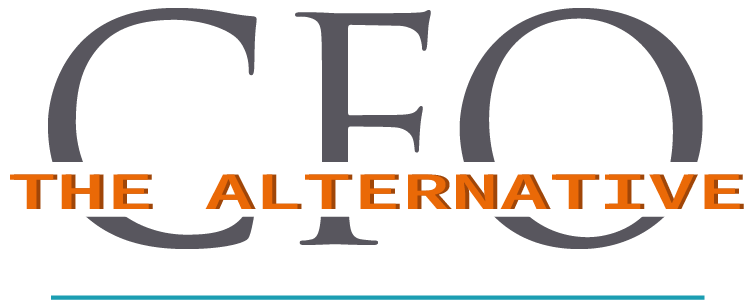As a trusted Greater Seattle Area small business owner, you’re no doubt fully aware of the importance of your business location. This is especially the case if you have a retail store or deliver a service where Greater Seattle Area customers come to you — you need a location with ease of access and foot traffic.
Even if you just need an office from which your staff can work — perhaps a blasphemous concept in the current work-from-home era — your choice of office location and amenities is an important decision.
Beyond just location considerations, you are also concerned with the financial aspects of this decision.
And this, of course, is right in my wheelhouse. So let’s explore these financial considerations.
But before I get there, a few quick legislative updates as it pertains to your business:
The 2021 Infrastructure bill is getting some serious push and pull in the House, and there are conflicting views on how this will affect small businesses.
Per the Treasury, the bill will target tax increases on big corporations (raising the corporate income tax — i.e. C-corps — to 28%, among other moves) while protecting the majority of small businesses (around 97%). But opposing sources argue that this doesn’t take into account the many small C corporations that could possibly be affected by the proposed corporate tax rate increase. In fact, according to the Tax Foundation “more than half of the pass-through business income could face tax increases.”
There’s certainly more to come on this, and we’ll keep you posted as lawmakers reach a final decision.
Now, onto commercial real estate opportunities…
Commercial Real Estate Opportunities In Greater Seattle Area NOW
“You may be disappointed if you fail, but you are doomed if you don’t try.” – Beverly Sill
Before you dive into the current opportunities for your working space, let’s get our facts right.
Commercial leases are a completely different animal than their residential counterparts. If you’ve ever rented a home or apartment, then you’re familiar with the basics: You pay the rent every month, don’t trash the place, and you get to live there. Easy peasy.
Commercial leases can be that simple, but they rarely are. A commercial lease will have the common things you’d expect, such as the duration of the lease and the things you can and cannot do on the premises. The financial terms, however, might be completely foreign to you.
The simplest type of commercial lease is a gross lease, which is most similar to a residential lease. In this type of arrangement, your landlord will pay most of the costs associated with maintaining the property. They will take care of the maintenance, pay the property taxes, and may even pay some or all of the utilities. These types of leases are nice and simple for us as Snohomish County business owners. Unfortunately, they are the rarest breed of commercial lease.
A net lease gets much more complicated, and is the most common type of arrangement that you’ll find. In a net lease, you’ll pay a set amount of rent each month to occupy the space, but you’ll also be required to pay some of the variable costs of keeping up the property. For example, you might be required to pay all or part of the property taxes, insurance, and maintenance. You’ll definitely be on the hook for all of the utilities, too.
A common term that you’ll hear in commercial real estate is triple net lease. This may be indicated by the initials NNN in an ad for the space. This is a net lease in which the tenant is expected to pay everything. The three N’s correlate to property tax, insurance, and maintenance.
While more complex, a net lease gives you the opportunity to know and review the operating expenses of the property, and negotiate with the landlord. During challenging economic times, when landlords are a bit more under the gun, they are more likely to be open to negotiating the items you pay. This way, you may end up paying less than on a gross lease.
Should I move my existing business premises?
A year ago, millions of businesses across the country were closing their doors. Many of them will never reopen. This has left commercial real estate landlords in a pinch, and desperate for a paying tenant.
This creates opportunity for you.
If your current lease is up and you’re open to moving, or you’re just starting your business, right now could be an incredible time to snap up a premium location at a below-premium price. Building owners just want somebody in the space paying rent to cover the costs of running the building or paying the mortgage. Empty space in a commercial real estate building also just doesn’t look good, and can reduce foot traffic due to perception of issues on the property.
Take advantage of this situation by asking about empty spaces that might work for your business. If you happen to know other business owners that have had to vacate their space due to cash flow issues, ask them to put you in touch with their landlord, as you might be able to take over a lease under good terms. This becomes win-win for the landlord and the other (or perhaps “former”) business owner.
If your business has been in the same location for a long time, and you’re well-known for being in that location, you may need to give pause to the thought of moving. If money is tight and getting tighter, moving may be the smart thing to do even if you’re well established in an iconic location. This is a conversation I’d be more than happy to have with you.
Should I buy or lease my business location?
Now might be a good time to consider buying your business location, if you’re in a financial position to do so. Leasing obviously gives you a lot more flexibility for your future, but if business is going well and you can see yourself being in the same location forever, now might be a good time to buy. If your current landlord is interested in selling their property, in order to de-risk their own portfolio in the current economic situation, would you be willing to buy?
Owning can make financial sense in the long run. You would get to benefit from the appreciation on the property yourself, rather than paying ever-increasing rents to your landlord. You lock in your base “rent” cost for the entire term of your commercial mortgage, making it easier to plan for the next 5 to 10 years.
Commercial real estate financing is a very different animal than what you’re used to from buying your home, though. Commercial mortgages typically have larger down payment requirements, and loans are generally 10 years or less, with a balloon payment at the end that requires you to either cough up cash or refinance.
The decision to buy a property requires quite a bit of financial analysis. If this is something you’re interested in looking at, let us walk you through the math to determine whether it’s a good idea for you or not.
2021! What can I do?
The purple mammoth in the room right now is obviously the economy. If your business is experiencing financial difficulties, and you’re not able to make your current lease payments, talk to your landlord. The worst thing you can do is avoid this conversation. Rather, be up front about the financial realities and see what your landlord can do to work with you.
Your landlord is likely open to modifying your current lease. Consider some common options:
- Temporary forgiveness of base rent.
- Deferral of rent.
- Payment plans for missed rent.
- Modification of who pays what on a net lease.
- Shorten or lengthen the lease, depending on landlord needs and preferences.
- Negotiating a percentage of business sales as payment against lease amounts due.
More than anything else, realize that your Greater Seattle Area landlord really doesn’t want a property sitting empty. That is the worst possible outcome for them. They don’t want to explain that vacancy to their bank, plus they’d rather have some cashflow coming in to pay expenses instead of a big fat goose egg. So they should be willing to work something out with you.
Whether you’re ready to move, ready to buy, or need to figure out alternative payment arrangements, now is a great time to be doing something with the commercial space that houses your business.
Feel free to schedule a time to discuss this piece of your financial future. We would love to help our clients make the right decisions here:
calendly.com/talktothealtcfo
We’re here to help. (Especially now.)
Warmly,
The Alternative CFO
(425) 409-9555
The Alternative CFO


